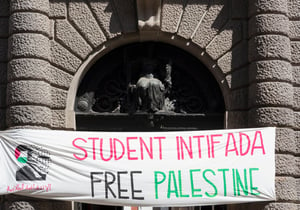
University of Haifa researchers have unveiled compelling insights into the psychological effects experienced by Israelis residing abroad in the wake of the conflict ignited by Hamas' violent actions on October 7, as reported by Arutz 7.
The study, which meticulously assessed the attitudes and mental health of participants, found that a substantial 66.4% of Israelis living outside Israel reported symptoms indicative of Post-Traumatic Stress Disorder (PTSD) during the initial two months of the war.
Employing two operational scales, researchers comprehensively measured participants' levels of anxiety and PTSD symptoms, revealing a significant impact on their psychological well-being. The study also revealed notable disparities in anxiety levels among Israelis across different countries, with the highest reported levels in Italy and Great Britain at 54% and 43%, respectively.
Additionally, the study highlighted the primary sources of distress among participants, with 43% expressing anxiety about the safety of their relatives serving in the IDF, while 33% were concerned about the well-being of their families in general. These findings provide crucial insights into the unique challenges faced by Israelis abroad during times of conflict, emphasizing the widespread psychological repercussions and the complex interplay of anxiety and PTSD symptoms among this population.






















